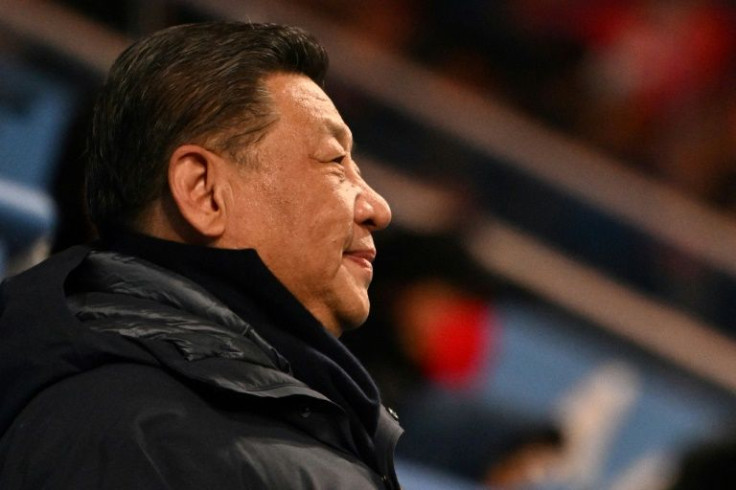Olympic Diplomacy Blitz Nets Argentina For China's Belt And Road
China welcomed Argentina into its global Belt and Road Initiative Sunday as President Xi Jinping capped a weekend of frenetic diplomatic activity on the sidelines of the Winter Olympics.
Xi has not left his country since the coronavirus first emerged in the city of Wuhan, with China now the only major economy still pursuing a strict zero-Covid strategy.
But the Beijing Games have allowed Xi to hold a flurry of face-to-face meetings with fellow world leaders for the first time in nearly two years.
On Sunday, state broadcaster CCTV said China and Argentina inked an agreement on "jointly promoting the construction of the Silk Road Economic Belt and 21st Century Maritime Silk Road", marking Argentina's entry into the initiative.
China's BRI is a trillion-dollar push to improve trade links across the globe by building landmark infrastructure, and the inclusion of Argentina is a major win for Beijing in Latin America.
Chinese companies invested more than $20 billion in non-financial direct investment on projects in BRI countries in 2021, according to China's commerce ministry.
The deal came as Argentine President Alberto Fernandez made a three-day visit to China during which both sides also said they would continue to support each other on issues concerning sovereign interests.
The statement backed each other's territorial claims -- the Falkland Islands for Argentina and China's dispute over Taiwan.
Xi also met with Pakistani Prime Minister Imran Khan on Sunday, shortly after Pakistan's army said troops had put an end to four days of assaults by separatists in Balochistan province.
China has invested significantly in the region where separatists have waged an insurgency for years, fuelled by anger that its abundant reserves of natural resources are not relieving citizens from crushing poverty.
During the meeting, Xi stressed that "the Chinese side firmly supports Pakistan in safeguarding its national independence, sovereignty and dignity, as well as in combating terrorism", according to state media.
He added that China is willing to work with Pakistan in "aligning development strategies".

Xi also met with Polish President Andrzej Duda and Singaporean President Halimah Yacob on Sunday.
His most significant meeting took place on Friday when Xi held talks with Russia's Vladimir Putin just before the opening ceremony of the Olympics.
The Kremlin later released a joint statement from the two sides in which Beijing threw its support behind Moscow on a host of foreign policy issues, including that the US-led NATO military alliance should not admit new members.
The statement was a vivid illustration of how Russia and China have forged closer ties in recent years as tensions rise with the West on a host of security issues, including the future of Ukraine and Taiwan.
Twenty-one world leaders attended the Games, an event Beijing hopes will burnish its international image, but the sporting spectacle has been clouded by a Western diplomatic boycott over China's rights record.
A majority of the leaders who came for the Games rule over non-democratic regimes, according to the Economist Intelligence Unit's Democracy Index.
Xi's Saturday meetings included talks with Egypt's strongman leader Abdel Fattah el-Sisi as well as the heads of Kazakhstan, Turkmenistan, Serbia, Ecuador and Qatar.
He also held talks with UN Secretary-General Antonio Guterres who said he expects Beijing to allow UN human rights chief Michelle Bachelet to make a "credible" visit to China including a stop in the troubled Xinjiang region.
Campaigners say at least one million Uyghurs and other Turkic-speaking Muslims have been incarcerated in Xinjiang, a far-western region where China is accused of widespread human rights abuses including forced sterilisations of women and forced labour.
China initially denied the existence of internment camps and then said they were for "re-education". The United States and some Western lawmakers have described China's treatment of people in Xinjiang as genocide, a charge Beijing strongly denies.
Transcripts of the Guterres meeting from China's government and state media made no mention of Xinjiang or rights issues.
© Copyright AFP {{Year}}. All rights reserved.






















